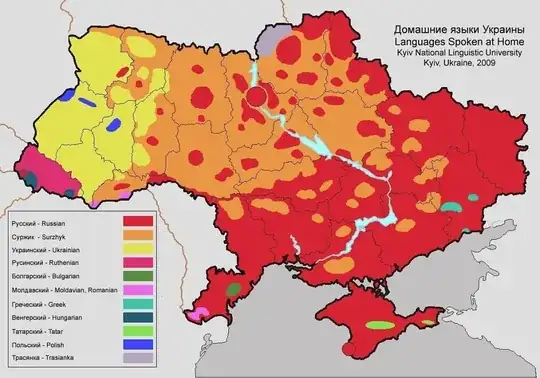Various Russian & other sources give this map (also on P.SE, but probably the most notable of these might be https://www.opendemocracy.net/ru/kto-boretsya-s-kem-v-ukraine-i-pochemu/)
Was that map actually published by "Kyiv National Linguistic University" in 2009 as claimed by the caption? And what kind of publication was it? A consensus statement by the researchers of the university? One paper by a subset of their faculty, etc.? And what kind of survey methodology did they use to determine the language spoken "at home"?
